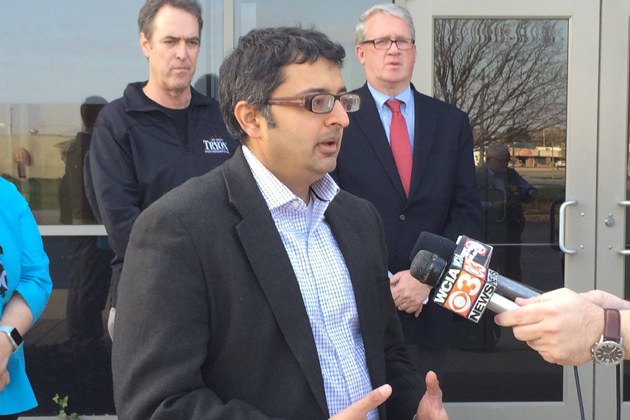
By Greg Bishop/Illinois Radio Network
SPRINGFIELD – Opioid addiction is a problem afflicting the entire country, and Illinois has seen an alarming number of people addicted to the painkiller in its southern region. The state is now stepping in to help get the situation under control.
Dr. Nirav Shah, director of the Illinois Department of Public Health, said almost 1,900 people died from opioid-related causes across the state last year, and he believes that number will continue to grow in the coming months and years.
Shah said people from all walks of life will be affected in some way by the opioid crisis.
“It affects different communities differently,” Shah said. “In some places, the nature of opioid-use disorder is something that already comes on top of years of decline and despair that many communities have already faced.”
Southern Illinois has been hard hit by opioid addiction. Marion, Madison and St. Clair counties had some of the highest opioid-related hospitalizations in Illinois between 2009 and 2010, according to data from the Community Behavioral Healthcare Association (CBHA).
Many people become exposed to opioids through a prescription from their physician, but by the time the physician decides to cut off the supply, the addiction might have already set in, according to Shah.
“Many individuals will then go out and search for any opioid they can find, and in some cases, sadly, that will involve a drug like heroin,” Shah said.
The number of opioid prescriptions grew 30 percent in Southern Illinois between 2008 and 2016, and the length of pain treatment is three weeks longer there than in the rest of the state.
Between 2009 and 2010, an estimated 2,700 people were hospitalized due to opioids in the southern region of the state, according to CBHA.
The costs associated with substance use in general and opioid use in particular are staggering, according to Shah. Health care costs associated with opioids totaled $887 million in Illinois in 2007 and have only worsened, according to data from Drugfree.org.
Shah said Illinois has decided to focus on three key areas to help get the opioid crisis under control: educating healthcare providers and the general public about opioids, how to recognize when a patient is addicted to opioids and how to prescribe opioids more responsibly.
Shah’s focus as a health care professional is on the number of people who have lost their lives dealing with opioid addiction, he said. Treating this problem won’t be simple.
“We’re not really going to be able to treat our way out of the crisis,” Shah said. “We’re certainly not going to be able to arrest our way out of the crisis. Really, the key here is going to be focused on preventing individuals from even encountering opioid use disorder in the first place.”
More than a half-million people died from drug overdoses between 2000 and 2015, according to the Centers for Disease Control, and 60 percent of the deaths involved an opioid.






